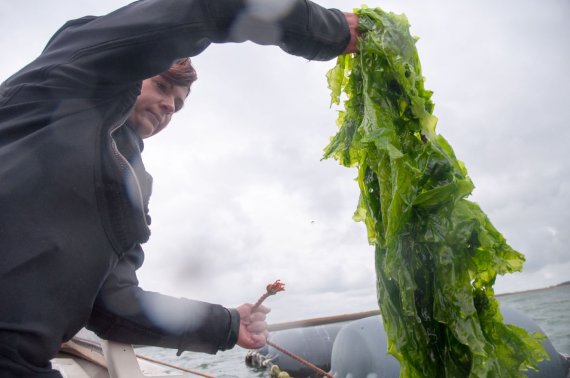Photo: Leonard Passchier
Anyone who has ever eaten sushi is familiar with seaweed. But it is not a generally well-known food product. ‘Such unfamiliar products are not easy to introduce because eating behaviour is a matter of deep-rooted habits that are hard to break,’ says Marleen Onwezen, a research of Consumer Behaviour at Wageningen Economic Research. ‘That is a pity because seaweed is a healthy and sustainable source of protein.’
One way of making seaweed more attractive is to integrate it into products people are familiar with, such as wraps. In a pilot study, the researchers investigated what was the best way to get people eating seaweed wraps. They served up pictures of different wraps to 612 participants in an online survey. The wraps contained 5, 50 or 100 percent seaweed respectively.
Strikingly, the percentage of seaweed had no influence on the consumer’s willingness to buy the product. What did make a difference was the way the product was described. This was done either with a cognitive appeal ‘Seaweed wraps are a healthy source of vitamins and minerals’ or with an emotional appeal – ‘Feel healthy with these seaweed wraps packed with vitamins and minerals.’
It turned out that people exposed to the cognitive message had more negative expectations of the wrap made of 100 percent seaweed than of the other variants, in terms of smell, taste and texture. When the appeal was emotional, that negative effect disappeared. Onwezen: ‘Emotions play a major role in food choice, especially when it comes to new or unfamiliar products. By playing on emotions you can overcome those barriers.’

